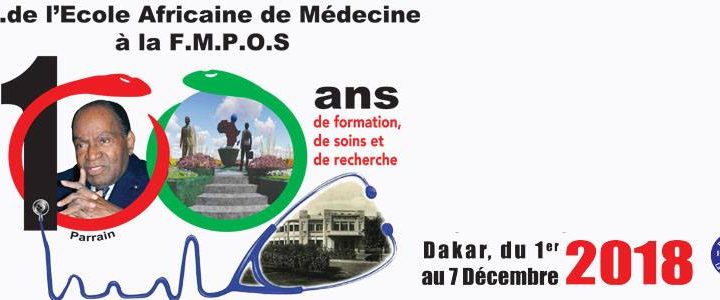Details
Founded in 1918, the School of Medicine of French West Africa celebrates its centenary in 2018. Indeed, after the Great War (1914-1918), the promotion of economic and social progress of the colonies is included in the priorities of the colonial development project. The protection of the African population against disease and death suggests the creation of health services and the strengthening of medical personnel. It is in this context that was created by decree of the President of the French Republic, on January 14, 1918, the African School of Medicine of Dakar charged with ensuring the training of a local African medical and paramedical staff such as the assistants doctors, midwives, nurse-visitors destined to the Service of Indigenous Medical Assistance created by decree of February 8, 1905.
The AOF School of Medicine opened its doors in Dakar on November 1, 1918, under the direction of Aristide Le Dantec, who at the same time serves as Director of the Central Indigenous Hospital created in 1913. The school, christened for a while Jules Carde, is transformed into African School of Medicine and Pharmacy whose seat is set in Dakar by Decree of August 11, 1944.
Considered one of the first faculties of medicine and pharmacy on the African continent, the first multinational school, opened in French West Africa in 1918, celebrates one hundred years. Throughout the period, various and varied reforms, or even profound changes took place, underpinned by the historical, economic and / or political context of the time. Moreover, it is important to note in this process a constant: the centrality of the structure in the system of training, teaching, research and management of health issues at national level and continental, both under colonization and during the postcolonial period.
On the political front, African doctors like Houphouet Boigny from the GDR, Majmouth Diop from the PAI, etc., from the African School of Medicine in Dakar were among the leading figures of the African nationalist movement. Today, the African School of Medicine in Dakar has become a historical heritage for most countries formerly colonized by France.
The centenary of FMPOS offers biomedical scientists and social scientists, historians, the opportunity to revisit this period of major break in the history of Senegal.
This is the challenge of holding this International Symposium, which places the FMPOS at the heart of the debate, to identify avenues of life-saving solutions for the evaluation, or even the refoundation of the structure in a context of irreversible globalization and in the face of challenges of the world of tomorrow.

